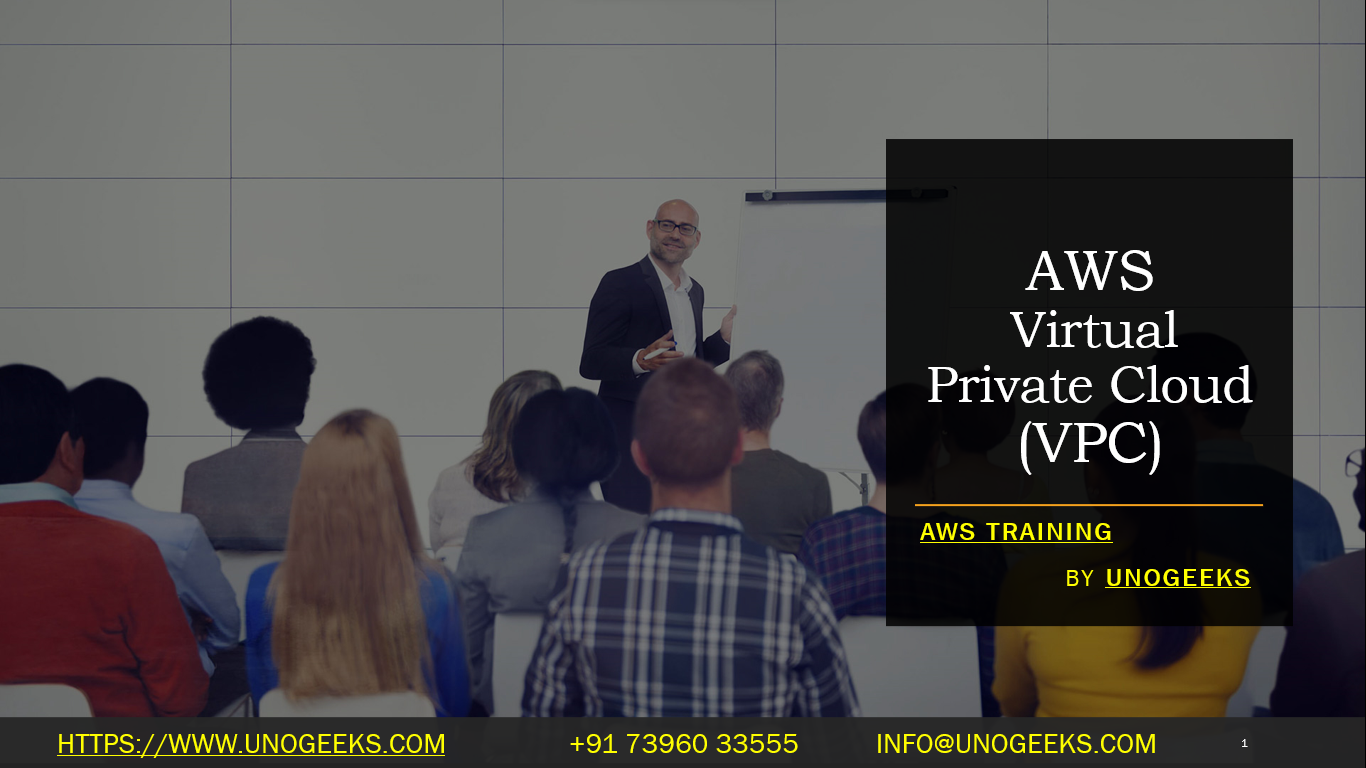Virtual Private Cloud (VPC)
Virtual Private Cloud (VPC) is a service provided by Amazon Web Services (AWS) that allows you to create and manage a logically isolated virtual network within the AWS cloud. With VPC, you can define and customize your own network configuration, including IP address ranges, subnets, route tables, and network gateways, to provide a secure and private environment for your AWS resources.
Here are some key aspects of AWS Virtual Private Cloud (VPC):
Network Isolation: VPC provides network isolation, allowing you to create a private network in the cloud. Each VPC is isolated from other VPCs and the internet by default. You have full control over the IP address ranges and subnets within your VPC.
Subnets: VPC allows you to divide your IP address range into subnets. Subnets are network segments within a VPC that can be associated with different availability zones (AZs). This allows you to distribute your resources across multiple AZs for high availability and fault tolerance.
Routing: VPC provides routing tables that control the flow of network traffic between subnets, as well as between your VPC and the internet or other VPCs. You can define custom routes and route tables to control how traffic is routed within your VPC.
Security: VPC offers several security features to protect your resources. You can define security groups and network access control lists (ACLs) to control inbound and outbound traffic at the instance and subnet level. VPC also integrates with other AWS services like AWS Identity and Access Management (IAM) for authentication and authorization.
Internet Connectivity: By default, resources within a VPC are not directly accessible from the internet. However, you can configure internet gateways or NAT gateways to enable outbound and inbound internet connectivity for your resources.
Peering and VPN Connections: VPC allows you to establish peering connections between different VPCs to enable private communication between them. Additionally, you can create secure site-to-site VPN connections to connect your on-premises network with your VPC, providing a secure and encrypted connection between your resources.
Integration with AWS Services: VPC integrates seamlessly with other AWS services. You can deploy various AWS resources, such as EC2 instances, RDS databases, and Elastic Load Balancers, within your VPC to leverage the full capabilities of the AWS ecosystem.
AWS VPC offers a flexible and scalable networking solution, allowing you to create and manage your own virtual network infrastructure in the cloud. By using VPC, you can build secure and isolated environments for your applications and resources, while having full control over network configuration and connectivity options.
Demo Day 1 Video:
Conclusion:
Unogeeks is the No.1 IT Training Institute for Amazon Web Services (AWS) Training. Anyone Disagree? Please drop in a comment
You can check out our other latest blogs on Amazon Web Services (AWS) Training here – AWS Blogs
You can check out our Best In Class Amazon Web Services (AWS) Training Details here – AWS Training

———————————-
For Training inquiries:
Call/Whatsapp: +91 73960 33555
Mail us at: info@unogeeks.com
Our Website ➜ https://unogeeks.com
Follow us:
Instagram: https://www.instagram.com/unogeeks
Facebook: https://www.facebook.com/UnogeeksSoftwareTrainingInstitute
Twitter: https://twitter.com/unogeeks
